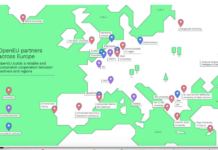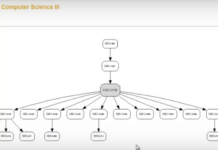eSchool News (2009) Stakeholders advise on national ed-tech plan eSchool News, November 17
U.S. Department of Education (ED) is preparing a new National Education Technology Plan and is accepting public feedback as it develops the new plan. A department spokesman did not know how long the public comment period would remain open, saying only that ED hopes to release the new plan in early 2010. More than 200 comments had been submitted to EdTechFuture.org, the new plan’s web site.
This article discusses recommendations from Susan Patrick, the person who oversaw creation of the last national ed-tech plan in 2004.Her submission states; “Online course enrollments are growing at 30 percent annually, but fall short of [student] demands. National surveys show that the [percentage] of [middle and high school] students [who] are interested in taking an online course is 40 percent. … [That’s] far more than the 2 million enrollments today. Outdated laws, policies, teacher preparation, professional development, and funding models limit student choices … made possible through online learning.”
Her recommendations include:
- A call for teacher-education programs at colleges and universities to train every pre-service teacher to teach online.
- Provide incentives for portability of credits among institutions and across state lines to support virtual learning.
- Provide incentives for true reciprocity of teacher professional licensure for online teaching.
- Encourage states to expand online-learning opportunities for students by making this a requirement for federal innovation and ed-tech funding.
- Invest in the development of open courses and curriculum with federal and state funding.
- Finish the job of ensuring ubiquitous internet access in schools and at home.
This eSchool article also includes discussion of submissions from other organizations, such as the Creative Commons and Sesame Street
Now wouldn’t it be nice if there was a similar initiative from the Canadian Federal Government for Canadian universities – oh, I forgot, education is a provincial responsibility, and universities are autonomous, eh?









 Dr. Tony Bates is the author of eleven books in the field of online learning and distance education. He has provided consulting services specializing in training in the planning and management of online learning and distance education, working with over 40 organizations in 25 countries. Tony is a Research Associate with Contact North | Contact Nord, Ontario’s Distance Education & Training Network.
Dr. Tony Bates is the author of eleven books in the field of online learning and distance education. He has provided consulting services specializing in training in the planning and management of online learning and distance education, working with over 40 organizations in 25 countries. Tony is a Research Associate with Contact North | Contact Nord, Ontario’s Distance Education & Training Network.


Plans are great and the act of planning is imperative for purposeful action. However, I question the amount of progress the USA is making and specifically the amount of progress we (the USA) has made from the 2004 plan to today as a result of the last plan.
These plans are well meaning and help stimulate dialogue however the problem is that these wide-ranging plans tend to be esoteric exercises toward lofty goals rather than small, measurable steps in the right direction. These plans encompass so many different stakeholders and groups that producing action toward the goal becomes an exercise in moving mountains. Smaller plans with measurable steps that are focused and supported by smaller groups of stakeholders would produce greater progress toward the larger goal.